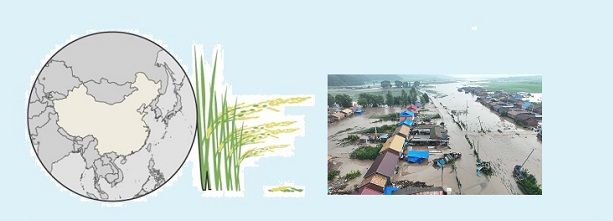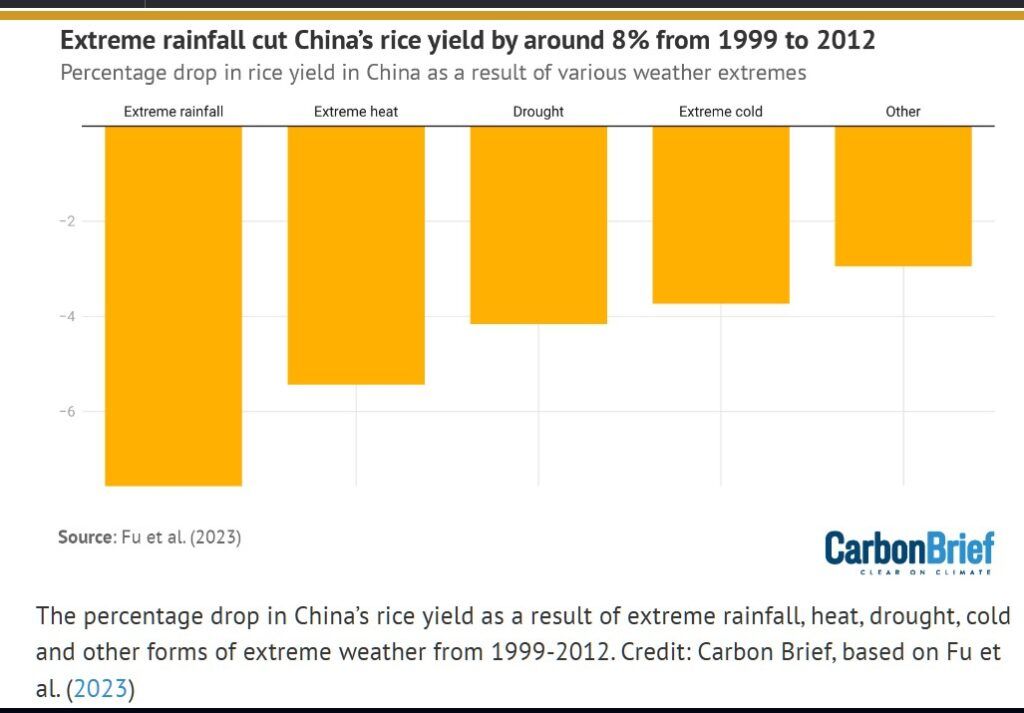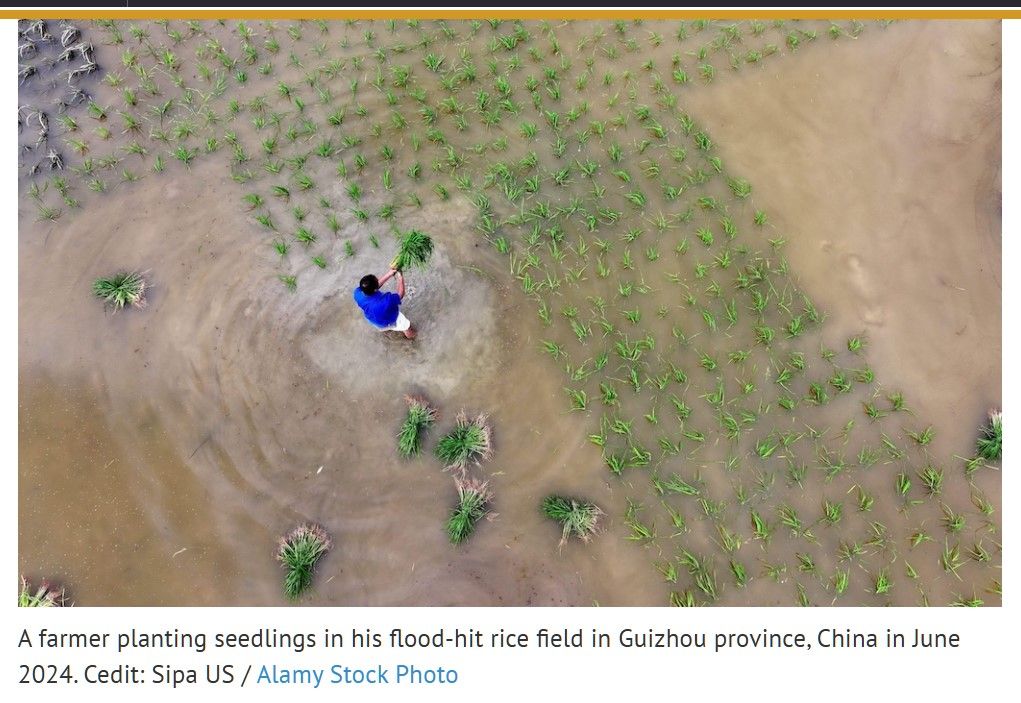
How climate change is driving up food prices.
China is a major producer of cereals – growing more rice and wheat than any other country in the world.
Based on the findings of a joint 2023 study by scientists from China, Germany, France and Cyprus, published in the journal Nature, the chart below shows that extreme rainfall cut rice yields in China by around 8% from 1999-2012.
Separate data from China’s National Bureau of Statistics shows that rice production fell by 3% between 2018 and 2023, while wheat rose by almost 4% and corn by almost 12% during this time.
The researchers analysed long-term national observations and model simulations, both showing similar results on the impact of extreme rainfall on rice yields.
Heat, drought, cold and other forms of extreme weather also negatively impacted rice yields during this time, the chart shows.

A 2018 report from China’s Ministry of Ecology and Environment outlined that climate change has “significantly impacted cropping systems”. Climate change will bring less reliable rains, enhance the spread of dangerous pests and result in shorter growing seasons for many crops in China, the report added.
China has been hit by a deluge of high temperatures, floods, drought and other forms of extreme weather over the past few years.

July 2024 was China’s hottest month since comprehensive records began in 1961, according to Reuters. The country has also faced 25 large-scale floods so far this year, the Global Times said, which is the highest since records began in 1998.
This year, farmers in Henan province – China’s eastern “agricultural heartland” – have been dealing with “parched crops” followed by extreme rainfall just one month later, CNN reported. The outlet said:
“Parts of Henan’s hardest-hit Nanyang city saw more than 600 millimetres (about 24 inches) of rain in 24 hours – three-quarters of what they would normally expect in a whole year.”
Drier soils are not able to absorb water as quickly as moist ones, so intense rainfall after a period of drought can lead to water running off the surface of the soil and causing floods.
The cost of some fruits and vegetables, such as cabbage, spinach and pears, has “risen sharply” in China since June, Reuters recently reported, after floods and heat that “devastated millions of acres of farmland and is now hitting consumers in their pockets”.
Last year, Carbon Brief reported on the impact climate change is having on China’s cropland. Severe drought followed by heavy rains and floods last summer, according to Reuters impacted corn, rice and wheat output. However, according to analysts the decline rice production in China is unlikely to result in larger imports as the country has ample domestic rice inventories and is largely self sufficient.
Sources:
Carbon Brief, Aug 23, 2024. Chart 5 – ‘China: Weather extremes lower rice yield‘. https://www.carbonbrief.org/five-charts-how-climate-change-is-driving-up-food-prices-around-the-world/
Nature Food, May 4, 2023. Fu, J., Jian, Y., Wang, X. et al. ‘Extreme rainfall reduces one-twelfth of China’s rice yield over the last two decades‘. https://doi.org/10.1038/s43016-023-00753-6